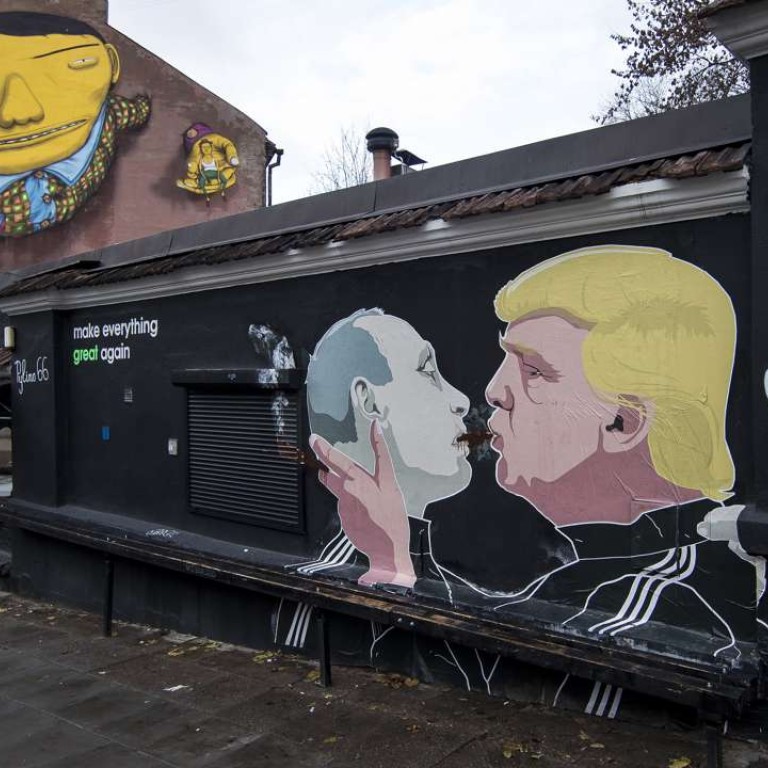
Why the US must not cry foul over Moscow’s alleged role in Trump winning the White House
Allen Yu says Americans shocked by both the ‘fake news’ phenomenon and Russia ‘hijacking’ their presidential election must not forget that the US has often done far worse to influence politics abroad
It is clear that, while the US election may be over, much of the rancour remains. In a season of surprises, the latest controversy now swirls around how a long-time adversary – Russia – hijacked America’s election to secure a Trump presidency.
Americans seem to be transfixed by this latest thriller, with President Barack Obama promising retribution, but Donald Trump warning against politicising US intelligence. American concerns about foreign interference, however, appear to be much ado about nothing.
Lest Americans forget, up until election eve, Trump had little to no chance of winning. The Princeton Election Consortium – in line with many news organisations – placed Democratic candidate Hillary Clinton’s chances of winning in the 90 per cent range.
Watch: FBI says no charges against Hillary Clinton
Hackers and whistle-blowers have always harboured private agendas, yet we judge information by the merits of the information, not by the intent of the leakers. So why the fuss about Russia now?
In the wake of Clinton’s surprising defeat, many have – in a strange throwback to the early US years when the Alien and Sedition Acts were the laws of the land – called on journalists to take on more responsibilities by refusing to report on “gossipy” or “non-credible” news. Many others have called for Facebook, Twitter and other social media to weed out all “fake news” on their networks.
Trump says groping allegations are part of a global conspiracy to help Clinton
All this represents a huge rethink for America’s political culture. Since at least the end of the second world war, America has prided itself in giving political actors free rein to use hyperbole and narratives to get their points across. In recent years, the US has even chastised China for trying to clean up “fake news” on its social media, deriding it as censorship in disguise.
But as American society becomes more polarised, as Americans search harder and harder for shared values, is America ready for a rethink?
US anti-propaganda law ‘may set stage for war of ideas with China’
For some, this is a wake-up call. The fact that Trump can still be elected is proof that democracy cannot function in an “anything said goes” environment. For others, however, resorting to “fact-checking” organisations, media, or any other institution to referee political discourse is dangerous.
Watch: Donald Trump booed as he arrives to vote
It is not surprising that much of America’s “fact-checking” industry has been historically biased, or that more and more Americans have come to distrust mainstream media. For them, what one deems “factual” cannot always be separated from politics.
Could there be a fundamental disconnect between democracy and freedom of speech?
Many Chinese have always been perplexed by how Americans can generally accept laws that govern how food nutrition and drug information are labelled – or how financial information is disclosed – but not on how political ideas are formulated and communicated – even where misinformation and disinformation can lead to social distrust and unrest.
Could there be a fundamental disconnect between democracy and freedom of speech, a disconnect that many Americans are only just beginning to see in light of the election of a controversial figure? Could democracy really function in an “anything said goes” environment?
Can speech be guided without causing affront to the democratic process?
How China’s highly censored WeChat and Weibo fight fake news ... and other controversial content
If not a fundamental rethink, perhaps Americans should at least give some thought to articulating some global norms against foreign meddling.
As bad as the recent allegations of Russian meddling may be, America has long done far worse to influence politics abroad. The US government, directly and through its NGOs, has a history of not just exposing unsavoury information about foreign governments and leaders, but also carrying out espionage and clandestine operations on foreign soil, against adversaries and allies alike.
CIA admits it was behind 1953 coup in Iran
Should America continue to rely on its strength and go it alone in conducting foreign meddling? Or should it seek a common understanding with the rest of the world and ask everyone to exercise some self-restraint?
Americans would do themselves and the world a favour by putting more effort into discussing these other issues – and spending less time engaging in partisan bickering or stoking xenophobia.
Allen Yu is adjunct fellow at the Chunqiu Institute for Development and Strategic Studies

